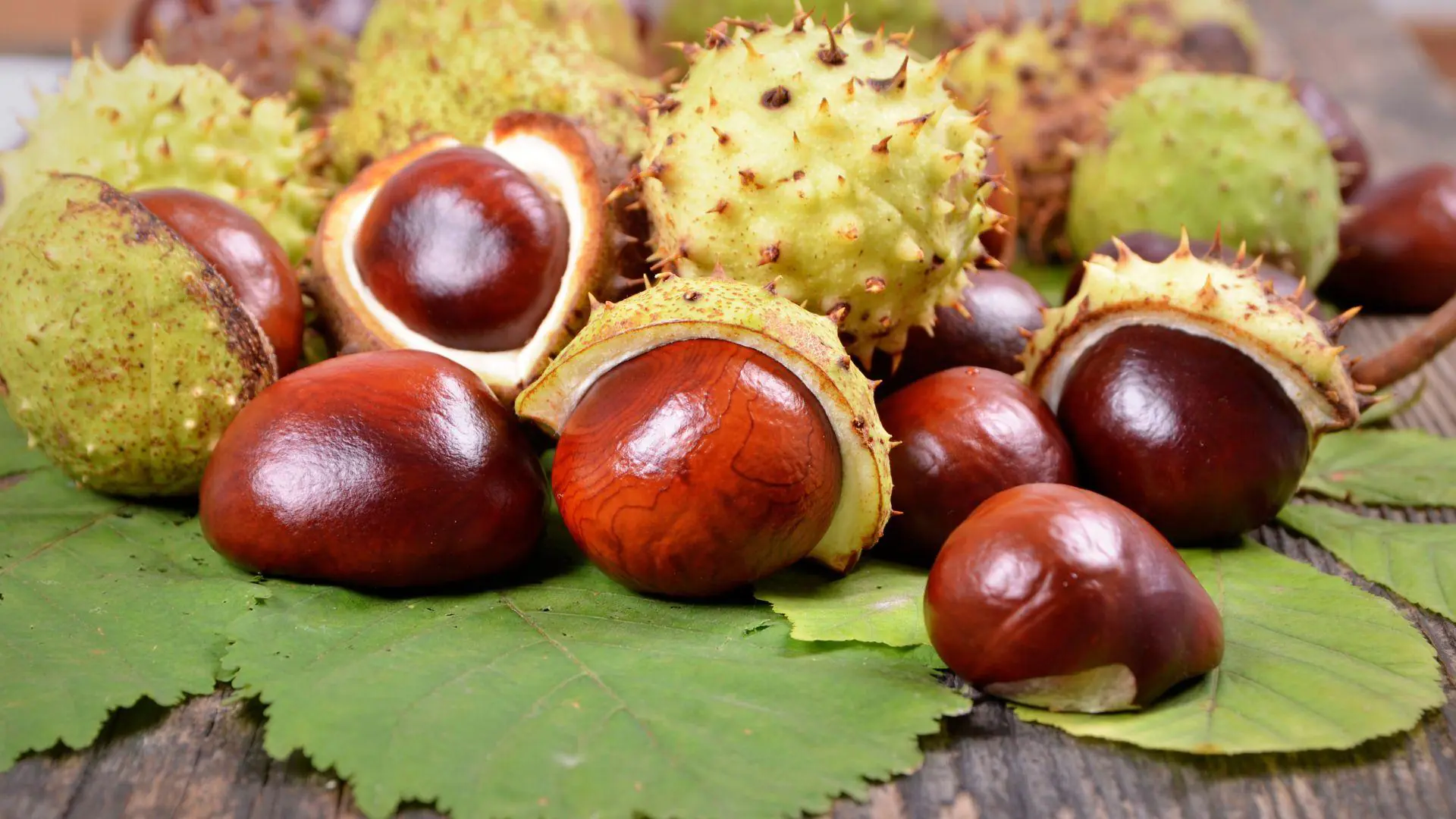Benefits of Horse Chestnut :
The horse chestnut, also known as the "horse chestnut tree" or "aesculus hippocastanum", is a tree native to the Balkans and Asia Minor. Its fruit, the famous chestnut, has long been used in herbal medicine for its many health benefits. Today, they are also used as a food supplement for their beneficial properties.
Relieves blood circulation problems:
Horse Chestnut contains escin, an active compound that helps strengthen vein walls and improve blood circulation. It is therefore particularly useful for relieving problems linked to poor circulation, such as heavy legs, varicose veins, haemorrhoids and venous disorders associated with pregnancy.
Natural anti-inflammatory :
Horse Chestnut extracts are also known for their anti-inflammatory properties. They can be used in cases of chronic or acute inflammation, such as tendonitis, arthritis, rheumatism or menstrual pain.
Improves the health of the digestive system:
Thanks to its anti-inflammatory properties, Horse Chestnut can also relieve certain digestive problems. It is often used to improve intestinal transit, relieve bloating and abdominal pain, or to treat inflammation of the intestines.
Protects the cardiovascular system :
Using Horse Chestnut as a dietary supplement can help prevent diseases of the cardiovascular system. Its vasoprotective properties help strengthen blood vessels and reduce the risk of diseases such as arteriosclerosis and hypertension.
Natural antioxidant :
Horse Chestnut fruit is rich in flavonoids, powerful antioxidants. They help protect the body's cells against damage caused by free radicals, and slow down the ageing process.
Origin of Horse Chestnut :
The Horse Chestnut is native to the mountainous regions of the Balkans and Asia Minor. Its name comes from its resemblance to the chestnut, although it is in fact a different species of tree. The fruits of the Horse Chestnut were once used by traditional healers for their medicinal properties.
Today, the tree is cultivated throughout the world for its fruit, seeds and extracts, which are used in phytotherapy and as a dietary supplement. It is found in Europe, Asia and North America.
Use as a food supplement :
Horse Chestnut is mainly used as a dietary supplement in the form of extracts or capsules. It is generally recommended to take between 300 and 600 mg of standardised Horse Chestnut extract per day, to benefit from its properties.
It is important to note that Horse Chestnut should not be consumed by pregnant or breast-feeding women, by people suffering from nut allergies, or by people taking anticoagulant or antiplatelet medication.
Scientific sources :
- Inhibition of platelet aggregation and thromboxane B2 synthesis by extracts from Aesculus hippocastanum L.
- Effects of the horse chestnut extract escin on scaling and skin microcirculation in patients with chronic venous insufficiency
- Horse chestnut seed extract for chronic venous insufficiency
Conclusion:
Horse Chestnut is a natural ingredient with multiple health benefits. As a dietary supplement, it can be used to relieve blood circulation problems, reduce inflammation and protect the cardiovascular system. However, it is important to consult a health professional before using it, to avoid any undesirable effects.











